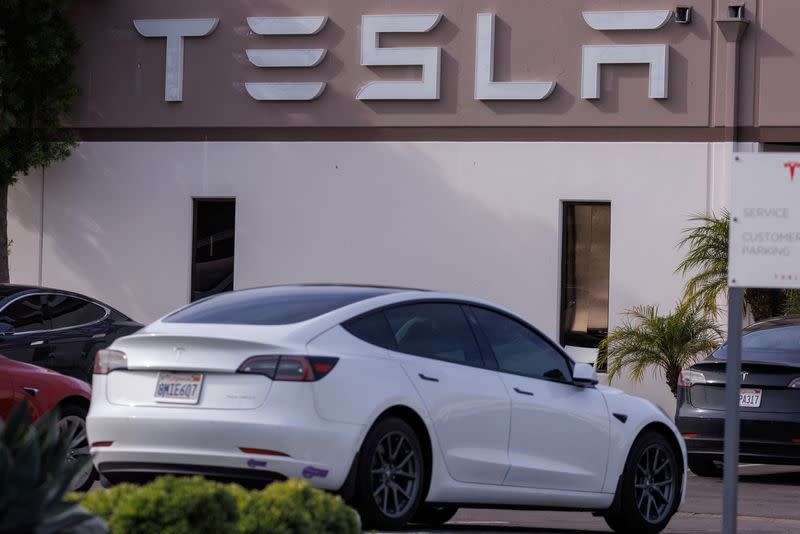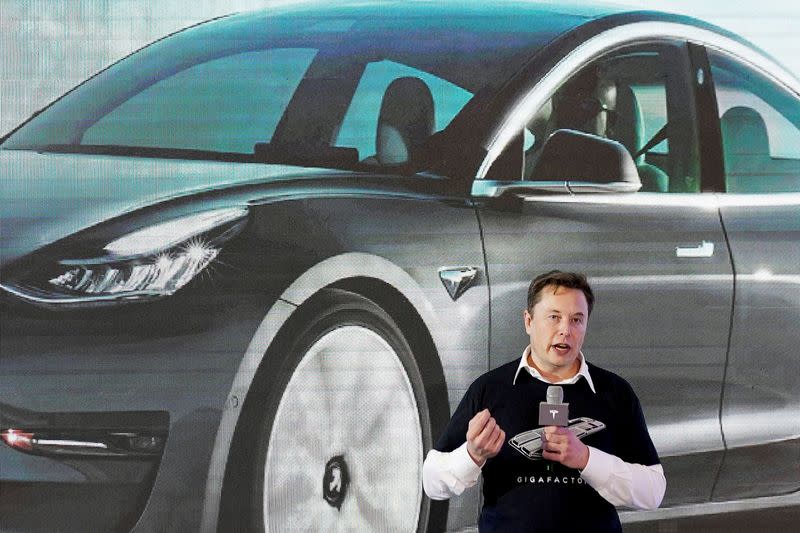Judge asks if Musk's $56 billion Tesla pay hangs on a legal 'kill shot'
By Tom Hals
WILMINGTON, Del. (Reuters) -A trial challenging Elon Musk's $56 billion pay at Tesla Inc may hang on whether a single material misleading disclosure to shareholders would void the compensation plan, which the judge hearing the dispute called "a kill shot."
At Tuesday's closing arguments in a Delaware court, a judge pressed lawyers representing Tesla directors and the investor challenging Musk's pay over whether the company's explosive growth outweighed misleading disclosures about the pay plan in 2018.
The arguments followed a five-day trial in November in the Court of Chancery that featured testimony from the Tesla chief executive about the origins of the 2018 pay package and whether its performance goals were difficult to achieve.
The pay package contributed to Musk's fortune, the world's second-largest, and has no comparison in the world of executive pay. Tesla investor Richard Tornetta sued Musk and the board in 2018, arguing it unjustly enriched Musk and should be voided.
Tornetta's attorney, Greg Varallo, told Chancellor Kathaleen McCormick because the plan was premised on a shareholder vote, any material misleading information given to shareholders meant the plan should be voided.
He said investors were never told that Musk dictated the plan to the board or that the company's directors who were supposedly independent were beholden to Musk through personal and professional ties.
McCormick called his argument the "kill shot" and said it was "elegant" but that she was skeptical. She asked both sides to provide her added briefing on the argument.
Attorneys for the Tesla directors argued that Tornetta never challenged the main details of the proxy that described the plan, such as the goals Musk had to meet.
The directors' attorneys argued that if McCormick determined the statements about director ties to Musk were misleading, she should then decide if the plan was fair to shareholders. The directors' legal team argued it was, because it led to a 10-fold increase in Tesla's stock price.
"Shareholders got their consideration," said Daniel Slifkin, an attorney for the Tesla board. "Shouldn't Mr. Musk get his consideration?"
The package allows Musk to buy 1% of Tesla's stock at a deep discount each time escalating performance and financial targets are met. If the targets are not met, Musk gets nothing, although his wealth still grows when there are increases in Tesla stock as he is a major shareholder.
Tesla has achieved all 12 targets, according to Varallo, as Tesla's value ballooned to briefly top $1 trillion in 2021 from $50 billion when the package was negotiated.
Musk, who also runs rocket company SpaceX, told the court during the trial he considered the pay package as a way to fulfill his ambitions for interplanetary travel.
"It's a way to get humanity to Mars," he testified in November. "So Tesla can assist in potentially achieving that."
A ruling by McCormick will likely take months.
(Reporting by Tom Hals in Wilmington, Del.Editing by David Gregorio and Matthew Lewis)



